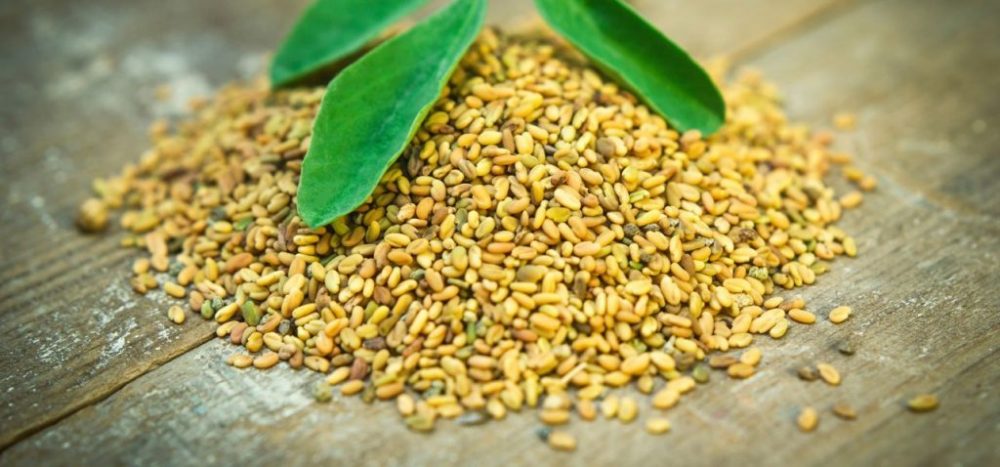
They contain alkaloids (mainly trigonelline) and protein high in lysine (Lysine is an essential amino acid needed for growth and to help maintain nitrogen balance in the body.) and L-tryptophan. Its steroidal saponins are thought to inhibit cholesterol absorption and synthesis. Trials have shown that fenugreek lowers elevated cholesterol and triglyceride levels in the blood, but does not lower HDL (“good”) cholesterol levels. The typical range of intake for cholesterol-lowering is 5–30 grams with each meal or 15–90 grams all at once with one meal. As a tincture, 3–4 ml of fenugreek can be taken up to three times per day. Due to the potential uterine stimulating properties of fenugreek, which may cause miscarriages, fenugreek should not be used during pregnancy.
Fenugreek is a plant that has been used for centuries by the Mediterranean peoples to naturally increase the female sex-drive. It triggers the release of sexual hormones and estrogen which will leave you fantasizing about your partner all day long.
The scientists at the Centre for Integrative Clinical and Molecular Medicine in Brisbane, suggested a compound called saponins that is found in Fenugreek that could boost testosterone production. Fenugreek has estrogen-like effects on the body, which may increase women’s sex drive and pleasure. Due to its estrogen-like properties, fenugreek has been found to help increase libido and lessen the effect of hot flashes and mood fluctuations that are common symptoms of menopause and PMS.